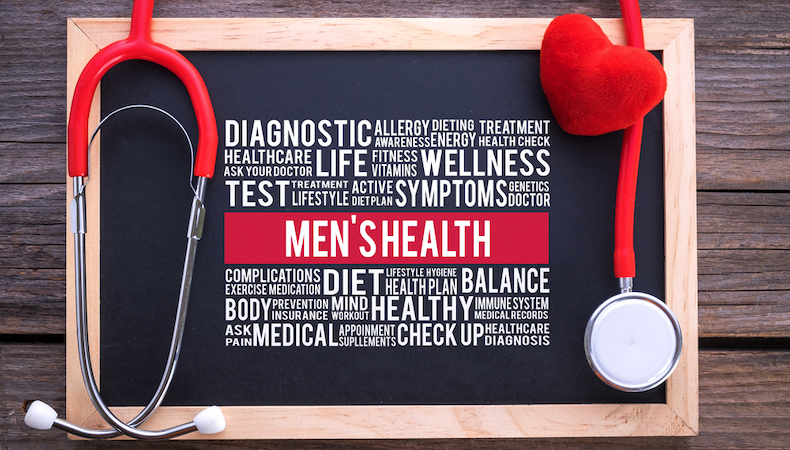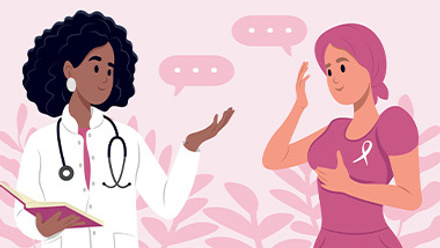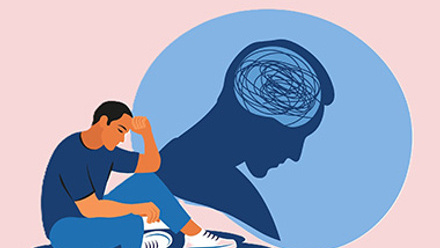5 things you need to know about men’s health
Every five hours in the UK and Ireland, four people kill themselves — and three of them are men.
This alarming statistic underscores a significant gap in the understanding of men’s health.
To shed light on this issue, Ryan Parke, The Men’s Coach, talks about the myths surrounding men’s mental and physical health — and how workplaces can offer better, more individualised support for men.
Men’s health and the medical system
In June 2019, Brad, a friend of Parke’s, died by suicide despite following all the conventional advice — seeking medical help, undergoing antidepressant treatment and talking to a therapist.
This story highlights that conventional health systems often fail to address the root problems of men’s health.
While therapy rates among UK men increased by 50% from 2010 to 2022 according to the British Association for Counselling and Psychotherapy, male suicide rates rose by 11% in the same period.
Parke says generalised approaches are insufficient — citing a study that revealed that 150 minutes of weekly exercise is 1.5x more effective than antidepressants and talking therapy in managing stress, depression and anxiety.
Focusing on the workplace as a pivotal setting for addressing men’s health, Parke pinpoints several important facts when it comes to men’s health.
1. ‘Too much testosterone’ doesn’t cause aggression
Contrary to popular belief, testosterone isn’t what causes pub fights.
Testosterone is a vital hormone for a man’s heart health and higher levels correlate with a lower risk of prostate cancer and better mental health.
Testosterone regulates the body, and in turn, the mind. By acknowledging this vital role, it’s easier to halt the unhealthy cycle between men’s physical and mental health — and allows men to take more preventative health measures.
2. The physical effect of sleep loss
Losing one hour of sleep lowers a man’s testosterone levels by the equivalent of 12 years of ageing.
Parke’s studies found there’s one day each year when heart attacks in men climb by 30%. It’s the day the clocks go forward, and many people lose an hour’s sleep.
Sleep deprivation can temporarily affect testosterone levels significantly and, over time, can hugely affect a man’s overall wellbeing. But that’s not all that affects testosterone levels. Another is alcohol consumption — a single drink has the power to lower a man’s testosterone levels by the equivalent of six years of aging.
It’s important to recognise these small, cumulative factors to have a more holistic understanding of men’s health and, as leaders, help guide them toward a healthier lifestyle.
3. Testosterone isn’t doomed after age 30
Contrary to popular belief, age isn’t the primary factor influencing testosterone levels.
The biggest affect is lifestyle. Sleep, exercise, diet, alcohol consumption and vitamin D play far more significant roles than age in testosterone levels.
4. Oxytocin isn’t a de-stressor for men
Oxytocin, often associated with stress reduction in women, doesn’t seem to have the same effect on men. Men are typically more practical, but once a man is flooded with oxytocin, he talks more about emotion and feeling.
It’s important to notice these hormonal differences to improve relationships and communication — because it helps create a connection in understanding where there’s typically a disconnection.
5. Men have to trust someone before they talk
Implementing effective wellbeing solutions requires establishing trust and respect. And tailoring support resources to address men’s challenges is vital for success — meaning the traditional, generalised approach might not be enough.
Parke recommends strategies for workplace support, such as ensuring confidentiality in employee assistance programmes, aligning wellness speakers with men’s communication preferences and providing signposting to address men’s unique health concerns.
It’s not that men don’t like opening up or talking about feelings ever: most men simply want to know that a resource is a viable, science-backed solution and that they will have confidentiality.
These slight changes can make all the difference and help build a safer and more supportive workplace for the men on your team. And hopefully it can help squash the stigma and misunderstanding around men’s mental health and holistic health once and for all.
3 things employers can do:
1. Offer Employee Assistance Programmes but…
“Because trust is so important, it means that if you’re providing things that are proven to be effective, things like EAPs, there need to be ways for men to get confidential support. If it’s not anonymous, if they believe they’re being monitored, men will not use those services.”
2. Get speakers to come and host discussions but…
“Make sure wellness speakers are communicating in a way that men identify with, because a generic message of wellbeing or mental health doesn’t really resonate with men. They think it doesn’t apply to them. Men don’t want to talk about emotions. But if you change the terminology, to teaming up and talking about solutions, you don’t have a problem.”
3. Provide sign-posting but…
“It has to be signposting that’s relevant to the challenges that men face. Each one of those early deaths of men — whether by suicide, heart disease or cancer — affects hundreds of people. And half of them are going to be female. This affects everyone — not just men.
Learn more from in the full webinar here.
Supplied by REBA Associate Member, YuLife
YuLife is the first digital life insurance provider on a mission to inspire life.








